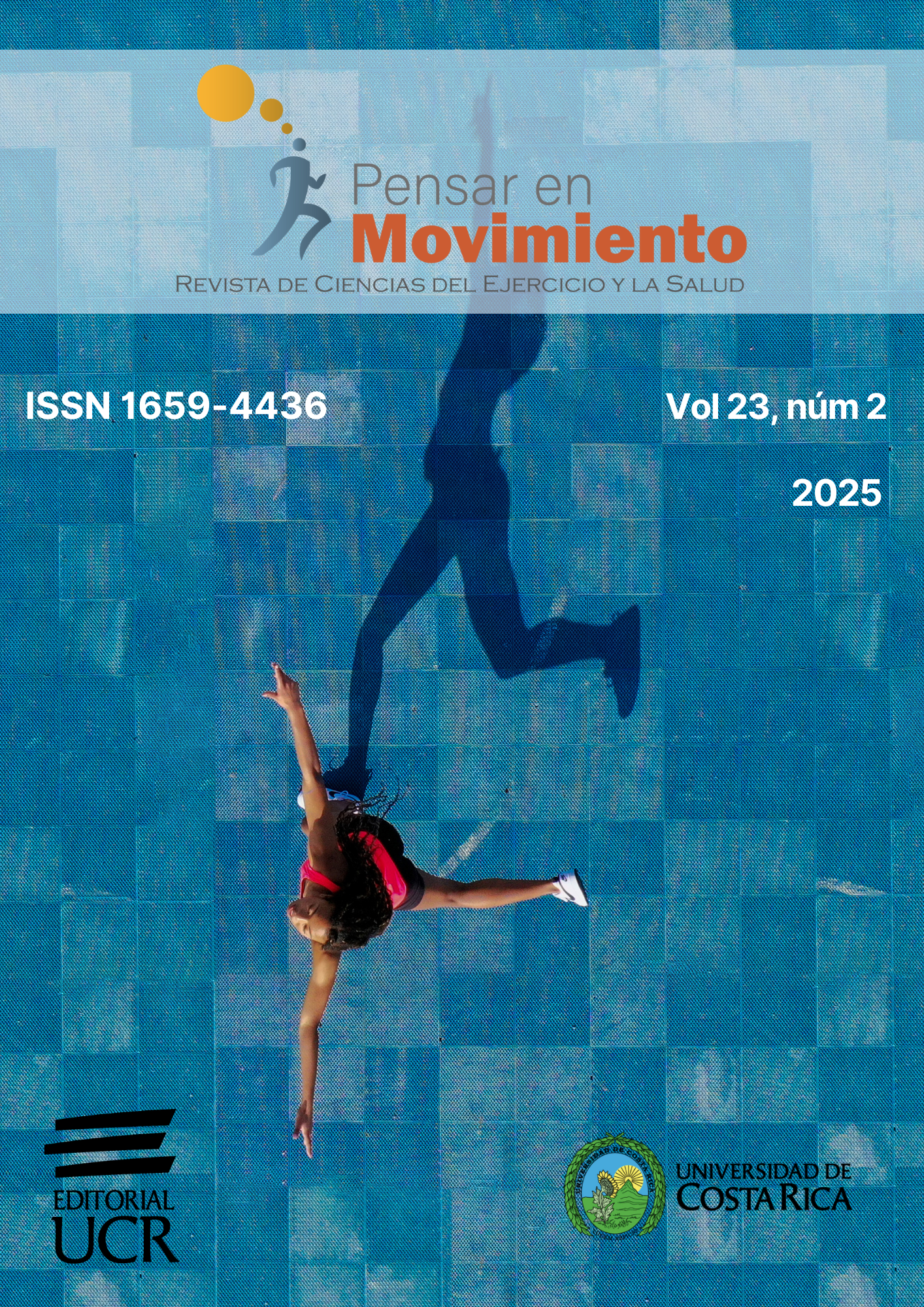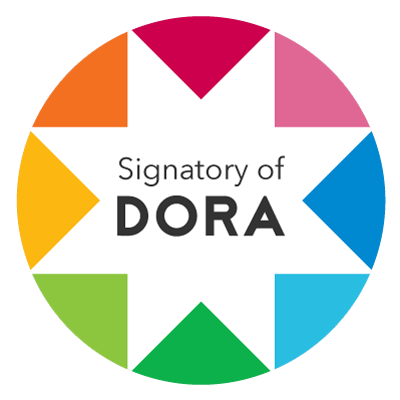Ejercicio físico, sistema inmune y composición corporal en pacientes con cáncer
DOI:
https://doi.org/10.15517/hfzc2p81Palabras clave:
physical activity, cancer, immune systemResumen
El sistema inmune está estrechamente relacionado con el proceso de carcinogénesis y está demostrado responde al efecto de diferentes modalidades de ejercicio físico. Las células Natural Killer (NK), como parte del sistema inmune innato, desempeñan un papel clave en las etapas tempranas de vigilancia tumoral, así como durante el tratamiento y el riesgo de recurrencia. Sin embargo, durante el tratamiento oncológico, su función puede verse comprometida por los efectos adversos de la quimioterapia o radioterapia. Ante ello, el ejercicio físico emerge como una estrategia no farmacológica prometedora para potenciar la función inmune y mejorar parámetros de composición corporal, la cual impacta sobre las células NK; sin embargo, esta relación sigue siendo materia de estudio. En este artículo de opinión, se discute la evidencia existente en torno a la respuesta de células NK y su relación con cambios en composición corporal en pacientes que realizan ejercicio de manera regular.
Descargas
Referencias
Arana Echarri, A., Struszczak, L., Beresford, M., Campbell, J. P., Jones, R. H., Thompson, D., y Turner, J. E. (2023). Immune cell status, cardiorespiratory fitness and body composition among breast cancer survivors and healthy women: A cross-sectional study. Frontiers in Physiology, 14, 1107070. https://doi.org/10.3389/fphys.2023.1107070 DOI: https://doi.org/10.3389/fphys.2023.1107070
Bigley, A. B., y Simpson, R. J. (2015). NK cells and exercise: implications for cancer immunotherapy and survivorship. Discovery medicine, 19(107), 433-445. https://pubmed.ncbi.nlm.nih.gov/26175401/
Brown, J. C., y Gilmore, L. A. (2020). Physical activity reduces the risk of recurrence and mortality in cancer patients. Exercise and sport sciences reviews, 48(2), 67-73. https://doi.org/10.1249/jes.0000000000000214 DOI: https://doi.org/10.1249/JES.0000000000000214
Caan, B. J., Cespedes Feliciano, E. M., Prado, C. M., Alexeeff, S., Kroenke C. H., Bradshaw, P., Quesenberry, C. P., Weltzien, E. K., Casillo, A. L., Olobatuyi, T. A., y Chen, W. Y. (2018). Association of Muscle and Adiposity Measured by Computed Tomography with Survival in Patients With Nonmetastatic Breast Cancer. JAMA Oncology, 4(6), 798-804. https://doi.org/10.1001/jamaoncol.2018.0137 DOI: https://doi.org/10.1001/jamaoncol.2018.0137
Cho, E., Stampley, J., Wall, R., Matthews, R., Zunica, E., Brown, J. C., Johannsen, N., Irving, B. A., y Spielmann, G. (2023). Acute exercise increases NK cell mitochondrial respiration and cytotoxicity against triple-negative breast cancer cells under hypoxic conditions. Medicine and Science in Sports and Exercise, 55(12), 2132. https://doi.org/10.1249/mss.0000000000003250 DOI: https://doi.org/10.1249/MSS.0000000000003250
Farley, M. J., Bartlett, D. B., Skinner, T. L., Schaumberg, M. A., y Jenkins, D. G. (2023). Immunomodulatory Function of Interleukin-15 and Its Role in Exercise, Immunotherapy, and Cancer Outcomes. Medicine and science in sports and exercise, 55(3), 558-568. https://doi.org/10.1249/mss.0000000000003067 DOI: https://doi.org/10.1249/MSS.0000000000003067
Hagstrom, A. D., Marshall, P. W., Lonsdale, C., Papalia, S., Cheema, B. S., Toben, C., Baune, B. T., Fiatarone Singh, M. A., y Green, S. (2016). The effect of resistance training on markers of immune function and inflammation in previously sedentary women recovering from breast cancer: a randomized controlled trial. Breast cancer research and treatment, 155(3), 471-482. https://doi.org/10.1007/s10549-016-3688-0 DOI: https://doi.org/10.1007/s10549-016-3688-0
Hanson, E. D., Bates, L. C., Moertl, K., y Evans, E. S. (2021). Natural killer cell mobilization in breast and prostate cancer survivors: the implications of altered stress hormones following acute exercise. Endocrines, 2(2), 121-132. https://doi.org/10.3390/endocrines2020012 DOI: https://doi.org/10.3390/endocrines2020012
Kim, J. J., Shin, Y. A., y Suk, M. H. (2015). Effect of a 12-week walking exercise program on body composition and immune cell count in patients with breast cancer who are undergoing chemotherapy. Journal of exercise nutrition & biochemistry, 19(3), 255-262. https://doi.org/10.5717/jenb.2015.15092812 DOI: https://doi.org/10.5717/jenb.2015.15092812
Lee, K. J., y An, K. O. (2022). Impact of High-Intensity Circuit Resistance Exercise on Physical Fitness, Inflammation, and Immune Cells in Female Breast Cancer Survivors: A Randomized Control Trial. International journal of environmental research and public health, 19(9), 5463. https://doi.org/10.3390/ijerph19095463 DOI: https://doi.org/10.3390/ijerph19095463
Lee, J. K., Park, S., y Jee, Y. S. (2022). Immunoprotecting Effects of Exercise Program against Ovarian Cancer: A Single-Blind, Randomized Controlled Trial. Cancers, 14(11), 2808. https://doi.org/10.3390/cancers14112808 DOI: https://doi.org/10.3390/cancers14112808
Pedersen, L., Christensen, J. F., y Hojman, P. (2015). Effects of exercise on tumor physiology and metabolism. The Cancer Journal, 21(2), 111-116. https://doi.org/10.1097/ppo.0000000000000096 DOI: https://doi.org/10.1097/PPO.0000000000000096
Saxton, J. M., Scott, E. J., Daley, A. J., Woodroofe, M., Mutrie, N., Crank, H., Powers, H. J., y Coleman, R. E. (2014). Effects of an exercise and hypocaloric healthy eating intervention on indices of psychological health status, hypothalamic-pituitary-adrenal axis regulation and immune function after early-stage breast cancer: a randomised controlled trial. Breast cancer research, 16(2), R39. https://doi.org/10.1186/bcr3643 DOI: https://doi.org/10.1186/bcr3643
Schmidt, T., Jonat, W., Wesch, D., Oberg, H. H., Adam-Klages, S., Keller, L., Röcken, C., y Mundhenke, C. (2018). Influence of physical activity on the immune system in breast cancer patients during chemotherapy. Journal of cancer research and clinical oncology, 144(3), 579-586. https://doi.org/10.1007/s00432-017-2573-5 DOI: https://doi.org/10.1007/s00432-017-2573-5
Schmitz, K., Schwrtz, A., y Campbell, A. (2024). ACSM’s Essentials of Exercise Oncology. Wolters Kluwer Health.
Suzui, M., Kawai, T., Kimura, H., Takeda, K., Yagita, H., Okumura, K., Shek, P. N., y Shephard, R. J. (2004). Natural killer cell lytic activity and CD56(dim) and CD56(bright) cell distributions during and after intensive training. Journal of applied physiology, 96(6), 2167-2173. https://doi.org/10.1152/japplphysiol.00513.2003 DOI: https://doi.org/10.1152/japplphysiol.00513.2003
Thivat, E., Thérondel, S., Lapirot, O., Abrial, C., Gimbergues, P., Gadéa, E., Planchat, E., Kwiatkowski, F., Mouret-Reynier, M. A., Chollet, P., y Durando, X. (2010). Weight change during chemotherapy changes the prognosis in non metastatic breast cancer for the worse. BMC cancer, 10, 648. https://doi.org/10.1186/1471-2407-10-648 DOI: https://doi.org/10.1186/1471-2407-10-648
Toffoli, E., Sweegers, M., Bontkes, H., Altenburg, T., Verheul, H., Vliet, H., Gruijl, T., y Buffart, L. (2021). Effects of physical exercise on natural killer cell activity during (neo)adjuvant chemotherapy: A randomized pilot study. Physiological Reports, 9(11), e14919. https://doi.org/10.14814/phy2.14919 DOI: https://doi.org/10.14814/phy2.14919
Waidhauser, J., Schuh, A., Trepel, M., Schmälter, A. K., y Rank, A. (2020). Chemotherapy markedly reduces B cells but not T cells and NK cells in patients with cancer. Cancer Immunology, Immunotherapy, 69(1), 147-157. https://doi.org/10.1007/s00262-019-02449-y DOI: https://doi.org/10.1007/s00262-019-02449-y







